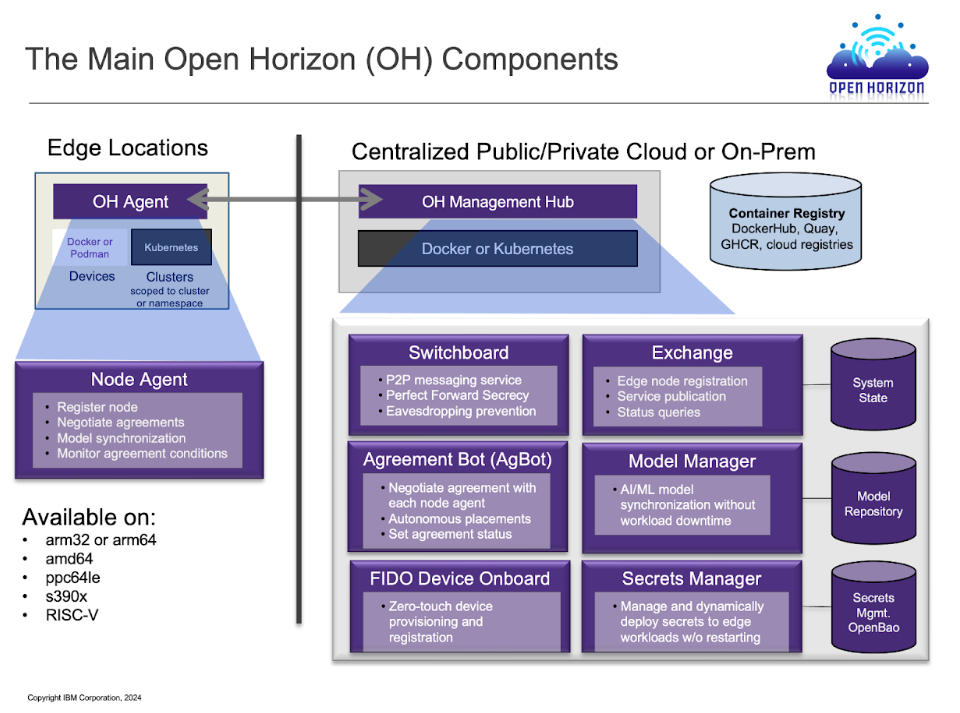OpenBao, an LF Edge project, is an identity-based secrets and encryption management system.
A secret is anything that you want to tightly control access to, such as API encryption keys, passwords, and certificates. OpenBao provides encryption services that are gated by authentication and authorization methods. Using OpenBao’s UI, CLI, or HTTP API, access to secrets and other sensitive data can be securely stored and managed, tightly controlled (restricted), and auditable.
Open Bao Mission Statement
OpenBao exists to maintain and improve a software solution to manage, store, and distribute sensitive data including secrets, certificates, and keys. The OpenBao community will provide this software under an OSI-approved open-source license, led by a community run under open governance principles.
The OpenBao Advantage
Most enterprises today have credentials sprawled across their organizations. Passwords, API keys, and credentials are stored in plain text, app source code, config files, and other locations. Because these credentials live everywhere, the sprawl can make it difficult and daunting to really know who has access and authorization to what. Having credentials in plain text also increases the potential for malicious attacks, both by internal and external attackers.
OpenBao was designed with these challenges in mind. OpenBao takes all of these credentials and centralizes them so that they are defined in one location, which reduces unwanted exposure to sensitive credentials. But OpenBao takes it a few steps further by making sure users, apps, and systems are authenticated and explicitly authorized to access resources, while also providing an audit trail that captures and preserves a history of clients’ actions.
How OpenBao Works: Ensuring Security and Efficiency
The core OpenBao workflow consists of four stages:
- Authenticate: Authentication in OpenBao is the process by which a client supplies information that OpenBao uses to determine if they are who they say they are. Once the client is authenticated against an authentication method, a token is generated and associated with a policy.
- Validation: OpenBao validates the client against third-party trusted sources, such as Github, LDAP, AppRole, and more.
- Authorize: A client is matched against the OpenBao security policy. This policy is a set of rules defining which API endpoints a client has access to with its OpenBao token. Policies provide a declarative way to grant or forbid access to certain paths and operations in OpenBao.
- Access: OpenBao grants access to secrets, keys, and encryption capabilities by issuing a token based on policies associated with the client’s identity. The client can then use their OpenBao token for future operations.
Key Features
- Secure Secret Storage: Encrypt and store key/value secrets with OpenBao, safeguarding them against unauthorized access.
- Dynamic Secrets: Automatically generate and revoke secrets for systems like Kubernetes or SQL databases.
- Data Encryption: Empower your teams with OpenBao’s encryption capabilities for secure data storage without the need for custom encryption solutions.
- Leasing and Renewal: Manage secrets efficiently with leasing options and automated revocation to maintain security.
- Revocation: OpenBao’s comprehensive revocation features ensure that secrets can be managed and revoked as needed for security and compliance.
